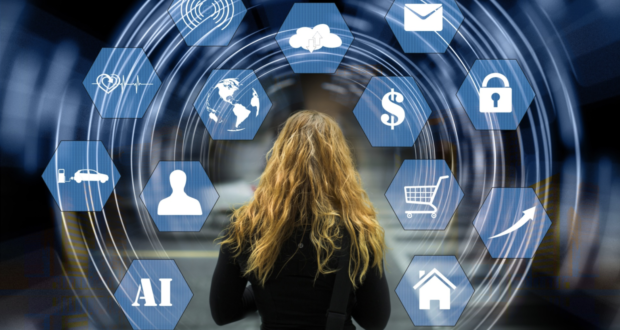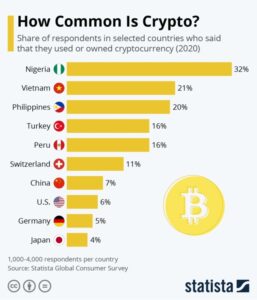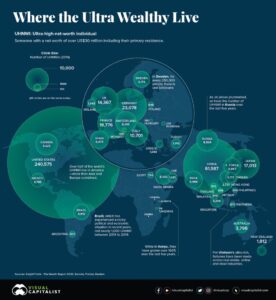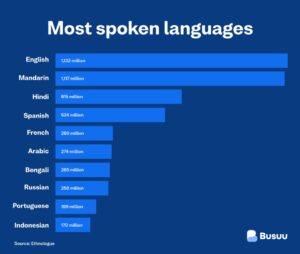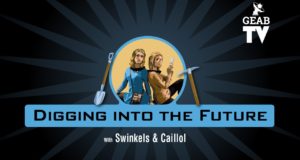Under the direction of Marie-Hélène Caillol, the second years of the International BBA of INSEEC-Paris applied the principles of anticipation and collective intelligence along an exercice of exploration of the future on the subject of “Doing Business in 2025”. Here is a synthetic version of their report.
The year 2025 is not so far ahead but it is a relevant horizon because it corresponds to the moment when beginner business students will resolutely enter the job market.
However, due to the Covid-related acceleration of socio-economic transformation, what this job market will look like by then is a concern for schools and students. Both are faced with the challenge of envisioning what “doing business in 2025” could look like in order to adapt and strategise their training schemes today.
A first very general remark on what the business world will be about in 2025 is that « it will be heading for the world of 2050 ». Indeed, each generation de facto prepares the future based on the tools of the present. This remark provides an interesting triple time-frame:
. 2050 (remote future): What project do human societies have in mind for 2050?
. 2025 (near future): What will be the principles, mechanisms and tools available in 2025 to head into this remote future?
. 2021 (present): How to prepare ourselves today to be in command of these principles, mechanisms and tools in 2025?
Based on the method of political anticipation crossed with principles of collective intelligence, our junior team (1) conducted an exploration, identifying transformational patterns and concluding on a few guiding lines to strategize study paths between now and 2025.
A brave new business world (megatrends)
The process of collective reflexion first resulted in identifying a set of megatrends conducting systemic change throughout our global economic model.
Between globalisation and relocation
The discussion highlighted one ambiguous double trend consisting of both a strengthening of globalisation, as a result notably of the strong push towards digitalisation (see next point) and other innovations aimed at enhancing data/goods fluidity such as: global electric grids,[2] newtech-based freight and logistics,[3] digital finance and currencies,[4] etc…
But on the other hand, the Covid crisis also seems to have lastingly reduced human mobility, hence calling for relocation of production capacities.[5] It has also highlighted the danger of complex global production/delivery chains in case of crisis[6] and triggered a whole new trend: autonomy in strategic fields such as energy,[7] pharmaceuticals,[8] food[9]… in particular.
These two diverging trends suggest a post-Covid world displaying high mobility of capital and services, dual mobility of goods, and low mobility of people.[10] Something to bear in mind when strategising a business or a career.
Digitalisation of everything
Of course, the very big trend of transformation is digitalisation, a process that started in the mid 90s with the arrival of the Internet which literally opened a new era, maybe even more disruptive than industrialisation was in the 19th century.
Twenty-five years later, the global human society has experienced change at a considerable pace and magnitude. The Covid crisis revealed the potential of reorganisation offered by new techs, and the world resolutely entered its digital era, soon to be systematised even further with 5G/6G, the Internet of Things (IoT), industrial digitation, etc… The digital world is the ecosystem for doing business in 2025, requiring to learn how to tame and make the most of its huge power.
New currencies and new ways to find money
Digitalisation of everything reaches more and more the financial and monetary sphere with new forms of currencies[11] emerging at a time when fiat currencies are questioned more and more.[12] Blockchain-based decentralised crypto-currencies on the one hand, central bank and/or private digital currencies on the other, compel us all to anticipate the different characteristics of the system which will soon be used to trade goods and services, one considerably more fluid, inclusive and globalised that will accelerate the change of paradigm. These more and more agile financial infrastructures naturally go along new forms of tech-based finance that will enable easier access to funding for whoever understands and knows how to use them. Non-Fungible Tokens (NFT) are one of the many innovations in the field of crowdfunding soon to replace formal and rigid financial markets.[13]
Figure 1 – How common is crypto? Source: Statista, 2020
New organisational patterns: the “liberation” of workers
As all economic activity climbs aboard the digital ecosystem, so do people, and along that migration, organisational patterns are being completely overhauled. Decentralisation and disintermediation reign masters. If our grandparents kept the same job their entire lives and our parents changed 3-5 times in theirs, the new generations will run their careers as freelancers (free electrons), constantly updating their skills, permanently entertaining their networks and endlessly seeking/inventing missions alone or with ad-hoc teams of complementary talents. They will be creating value on their own initiative or in response to others’ expressed needs, whether formal companies or one-shot projects.
In this kind of world, each individual is a business by itself, and companies become organic talent hubs. Independence of spirit, responsibility, self-reliability, entrepreneurship are states of mind to be taught and the measure of success will come less from the capacity of being hired by a company than from that of being agile and fast to spot/create the punctual missions where one’s talents will be needed.
Meanwhile companies will also need to understand and adapt to this new reality and learn how to spot and attract the talents they need while finding ways to incentivise those they want to keep in a context of high professional mobility/volatility.
This general atmosphere of free punctual cooperation will most probably reach companies which may have to learn how to work with public organisations (as shown by the automobile sector now working hand in hand with local authorities[14]) but also with other private companies[15] – whether competitors or complementary sectors.
New information and communication tools: « Doing business » is democratised
Decentralisation and disintermediation already question the role and modus operandi of the media. In the end, being correctly informed will lie in the hands of each and everyone and no longer in those of this or that media. Education in this regard will be key, aimed at providing tools and methods for individuals to navigate through a sea of information and manage to make rational sense out of it.
In terms of communication, the tools and methods to advertise for one’s own self, for a project or for a company will be the same. They will be required to juggle with social networking and data mining. But whether a big multinational company or a small individual, the tools are the same, the difference being the human intelligence using them. This shrinks in an unprecedented manner the gap between big and small entities where big ones simply have more power to attract the greatest human intelligences.
Hence the digital world is made for democratising « doing business » by providing everyone with all the types of tools that used to be accessible to large companies/institutions only: funding, information, communication to name only a few.
The end of cheap economy
Talks of surging inflation are everywhere.[16] Some think it is only a temporary post-Covid economic reboot-related trend. We think the effect could be more lasting than that. In fact, we came to anticipate that the Covid crisis may have terminated the former economic model that was all about being cheap, in favour of a more complex model.
The cheap economy model consisted of always producing cheaper in order to always sell more to ever poorer populations (poorer because trapped in the cheap production and wage system). This model is coming to a close due to two factors: it cannot go cheaper other than by tilting populations into sheer poverty (and non-consumption) and it is the reason behind the environmental crisis that the world has decided to finally address. As a clear signal of this trend reversal, taxation is back![17]
The question was: « Where is the stop button and who can push it? ». Well, Covid pushed that red button.
From now on, the trend could be the following:
. relocation (as mentioned above) to the expense of the former global system which connected all of the cheapest places on its value chains[18]
. inflation/premiumisation of superfluous material goods resulting in reducing consumption without shrinking profits (too much)
. problem with prime necessity material goods (food, medicine…) calling for public framing (new forms of nationalisation) and innovation (lab-grown meat, etc.)
. cheap non-material economy (e-leisure, e-tourism, gaming, e-culture, Netflix kind of movie production, etc…)
This U-turn will not be simple to negotiate, but having it in mind can help make the right career and business choices.
Leisure e-economy: Blurring lines between work and leisure
The evolution of the economic model can be understood as follows: after hunting-gathering, came the time of agriculture and building, then crafts and industrial production, then services. Now it’s time for the leisure economy in addition to all previous steps… (except hunting-gathering). This economy will be virtual, massive, cheap, and non-material-based (a bit of electricity and human time and creativity). It will consist of e-sports and gaming, e-tourism, music and film industries, culture and education contents and tools … pushed to unprecedented heights.
What’s interesting in this model is that consumers and professionals will mostly be the same people and the line will be thin between a gamer and a gaming business person, a music listener and a business-musician… Hobbies will easily turn into jobs as soon as the digital environment is well understood and business techniques (business modelling, marketing, communicating, networking, informing…) are properly handled.
Ethics in business – Social and environmental aware-business: Blurring lines between professionals and citizens
After three decades of « make business not politics » rule, politics is coming back… through business. Companies are now the most influential promoters and actors of social and environmental awareness. Supposedly under the pressure of the people, in fact under that of the media… owned by companies. Fundamentally, social and environmental concerns are in the interest of everyone but in particular of the business sector: they give them access to fiscal alleviations and public subsidies in exchange for their « efforts » to innovate/modernise.
Less cynically, in 2025, the fact will be that citizen concerns will fill companies with civil responsibility via their employees. In the hub-model described above, new generations will connect their talents to projects that make social and environmental sense for them.
Billions of jobs in sight!
In this next economic model, the material economy will mostly be automated, digitalised, robotised, AI-ed… leaving future experts prophesying a jobless society populated by 0.1% of Gods and 99.9% of Useless.[19] Well, that’s not what we think…
First of all, Covid is resulting in redirecting money, previously feeding technological values, towards the real economy. Public programmes of heavy infrastructures in Europe and the US are being launched based on the massive stimulus plans decided during the pandemic.[20] Priority to digitalisation of heavy industries such as the automobile enables us to anticipate new models of production where humans will in fact remain central, namely due to the announced decentralised format (networks of small units of production interfaced by human beings[21]). Behind innovation, humans are present at every step. Therefore, even in the smart real-economy jobs will surge.
But of course, it’s the virtual economy that promises activities for all, as shown in the previous chapter. And that’s where everything should start because even real economy jobs will require command of the digital tools and that’s where free workers and entrepreneurs will blossom.
The youth is already familiar with this world contrary to elder generations who are currently throwing in the towel and pre-retiring when they can (people in their 50s in particular), leaving space to the former – a huge difference with the x-generation that spent their entire professional lives crushed by the baby boomer generation (and finally when the latter are retiring, Covid hits…).
So, the already pointed economic growth will be all for the next generation, as long as it is clever, bold, aware and adequately trained.
Among the promising sectors, we spotted:
. Tourism and e-tourism: in full reinvention in line with the GEAB’s summer 2019 analyses,[22] physical tourism is going premium while mass-tourism goes online
. New space: with its ongoing privatisation, space is providing a new eco-system calling for thousands of different jobs across sectors[23]
. Sports and e-sports: sports are just one segment of this leisure digital industry we see as currently reaching a new dimension, embarking billions of people in new ways of practising sports, experiencing sport-fanship and exercising sport-related businesses[24]
. Healthcare: a change of paradigm is underway in how and by whom people’s health and well-being will be taken care of, opening new horizons for swathes of different jobs[25]
. Luxury: a global community of ultra-rich people de facto provides a population the size of a country[26] for luxury brands to sell real qualitative human-made products and services; another eco-system that will employ millions of people worldwide across all sectors of activities[27]
Figure 2 – Where the Ultra-Wealthy live. Source: Visual Capitalist, 2021
. Real estate: even real-estate is faced with opportunities and changes with cities appearing and growing worldwide, environmental constraints calling for innovative solutions, online platforms replacing agencies, and agents having to change, etc…[28]
. Blue economy: a completely new sector of activity lies in the oceans being exploited more and more (from classical fisheries and sea-shore tourism to seabed mining, bio-prospecting…) requiring principles of sustainability to be included right from the beginning.[29]
What to learn in order to be ready (skills, knowledge, training strategies)
Improving our understanding of the future only makes sense to the extent that it helps us prepare for it. Therefore, based on the amount of knowledge and understanding gathered in this report, it is now time to see how a 20-year-old student in 2021 strategises his/her studies in order to be fit for the business world of 2025… and/or how schools include these learnings to upgrade their educational offer.
We identified a number of key skills and knowledge to this aim:
Adaptability, resilience, agility
Throughout classes and disciplines, students should be taught that constant change will be their career’s natural environment and that the first quality they should embark is adaptability. Once we’ve said that, it remains to be seen, in all of the methods required, how to be adaptable in order to build and run agile organisations. These methods include updating information, questioning certainties, applying expiration dates on everything, reviewing goals and strategies all the time, networking and building collective intelligence for everyone to move at the same time, valorising creativity, etc…. Resilience and agility are the results sought for.
Languages
If the internet has connected people in English mostly for the past 25 years, recent developments suggest two adding trends: first, everyone is now climbing aboard this global digital working infrastructure and no longer only the erudite international part; second, we above identified the reaffirmation of national or cultural feelings and relocation moves.
Clearly, the time has come to learn languages again in order to navigate a new world of opportunities – focusing on the most relevant ones: English, Spanish, French, Portuguese, Chinese, Arabic, Russian and Hindi.
A European student should make sure he/she is familiar with 2 European languages at least (including his/her own) + 1 extra-European language. Speaking a less common language could provide a relevant strategy for a 4th language.
Figure 3 – Most spoken languages. Source: Busuu
Anticipation, foresight…
Change being a never-ending process, paying attention to ongoing trends and evolutions will not be an option in our careers. Adapting ourselves can be done rather fast, but once we’ll be in charge of businesses, processes of adaptation won’t be as easy. Hence even more visibility on challenges ahead for our businesses will be key. The anticipation skill is one feature of the state of mind required to avoid the stress of last-minute decisions made once crises are on the table. Leadership and foresight go hand in hand. Knowing that in the world described above, we will be leaders of our own lives far more than our ancestors were, plugging our brains with anticipation devices is no wasted time.
General culture
A big challenge in our future-obsessed virtualised society is to manage how we reconnect to the past and to reality. However, the reality we must reconnect to can no longer be that of our narrow-minded national worlds only. If we should remain aware of who we are, where we live and where we come from (national/continental education), a bigger effort should be exerted in favour of a global culture: the languages seen above belong to this category. But also the great outlines of other continents’ old and recent histories, the histories of today’s conflicts, a more accurate knowledge of the world’s big powers and their governments, these powers’ alliances and enmities as well as economic and political relations to the world (geopolitics, geo-economics), geography, economic characteristics of countries and continents, strategies… If today’s youth (and not only them) share this feeling of « being lost », it is mostly because the world we are de facto connected to is not being explained enough by media and education systems.
Schools should help… at least to guide us through the « sea of information » in this regard. But what schools must also help the youth with is to integrate as a permanent skill the fact of constantly updating the broad vision (global) of a dynamic present (anchored in the past and projected into the future).
Digital and data culture
Every school must raise their students’ digital literacy as a civilisational priority of course.[30] The difficulty being that elder people are less savvy than young ones in this field… So, we see the role of the educator as one of a guide accompanying their students through the dangers and lessons of the wild-wild data sphere. Educators should identify what future professionals are required to master: from digital physical infrastructures to data mining, through basic computer literacy, security issues, digital players (sectors and global companies – East and West), self-promotion on social networks, web search, value-creation, blockchain, crypto- and digital currencies, fintech, etc… The playful « gaming » environment is probably the perfect environment for these trans-generational educational explorations.
Multidisciplinarity, curiosity
In a world where machines are experts, overarching vision is a human added-value. And just as time and space perspectives are required (previous points), multidisciplinarity is key. To do business in 2025, even more than today, we will have to know how to communicate, finance ourselves, understand economic trends, but also be educated people capable of holding a civilised conversation, as well as have command over technological tools, be able to understand the technicalities of the product we sell, and connect it with the broad ecosystem it relates to, etc… Schools do already provide such broad vision. However, highlighting the connections between all the subjects that are taught to us could be improved. Creating the conditions for raising our interest and curiosity, that is where educators could help us with.
Information, research and study techniques
Students think of themselves as savvy in online search. However, margins for improvement exist and require mobilisation of senior experience. This study highlighted the importance of questioning processes and question formalisation as prerequisites for any good internet-surfing research. Also, critical thinking is important to understand and analyse the information found on the net (source, date, location,…) which students hardly pay any attention to, hence mistaking outdated reports as valuable information or national studies as global truths. The importance of diversified information, comparison and personal understanding can be insisted upon.
It’s been 20 years that finding information has become so easy that it seems irrelevant to teach it. In fact, info-research-study techniques must now address the challenge of navigating through a « sea of data ».
Expression/communication (oral, written, visual, digital)
The new business world is all about sharing information, self-promoting, networking, discussing, exchanging, communicating. However, at least in Europe, the average student’s written expression is a catastrophe. The problem is that writing remains the best way to learn how to organise ideas, make rational demonstrations, convince others of complex realities, etc… So basic literacy still includes writing, contrary to what some may think, and higher education has to make up for primary and secondary failings.
However, it is a fact that writing properly is no longer sufficient in this world of communication. Expression must be seen from a broader angle and include public speaking of course, as well as graphic design and clean document presentation, knowing how to make a video, a podcast, a PowerPoint presentation, etc. These are all key tools of a successful career.
Autonomy, self-confidence, curiosity
The fact that the professional of the future is, first and foremost, an e-freelancer suggests that autonomy will be a strong asset that we think will result from « justified self-confidence ». « Justified » reminds that self-confidence not anchored in knowledge and skills is self-delusion. However, we believe that the goal of education is to create the conditions for self-confidence to flourish. A youth entering the job market must know who he/she is and what he/she wants, be sure that he/she has something(s) valuable to offer and be capable of letting others know that. If he/she adds to this a curiosity for novelty, he/she is ready for a rich life-long career.
Team work, network, collective intelligence
This study is the result of a method of « collective intelligence of the future » where differences among members of the class resulted in multidirectional researches regularly pooled together by means of brainstorming sessions, documents sharing, and various reporting systems. With tomorrow’s digital free-lance entrepreneurship, the capacity to cultivate networks, identify complementary talents, build ad’hoc teams, work in collective intelligence… will be key. At this stage, educational models do not focus so much on teamwork, though methods are available throughout the internet already. Project-based / mission-oriented classes could help educational institutions to naturally switch to organisational models closer to the new characteristics of the business world.
Conclusion
This list of skills and knowledge to cultivate in order to be ready to do business in 2025 is not exhaustive. Not will the future be exactly as presented in this handbook. So this study’s central message is: informing one’s intelligence of the future is a defining skill, everyone must learn to constantly look ahead and update their understanding of the future with a view to adapt, make strategic decisions for themselves, their families, their careers and their future businesses. Understanding the future is not only essential and possible but it also requires to plug in information-update and learning-systems. Nothing is true forever, especially (but not only) in regards to the future. Hence the challenge is to understand and review trends as early as possible to create the time needed to make the required strategic moves.
As strategic anticipation reveals, the famous Titanic made all the right moves… only too late. Yes, strategy is about time management.
———-
Notes :
[1] In fact, this handbook is derived from a study conducted with both LEAP’s junior team and a 2nd year class of the International BBA of our partner, INSEEC, based on the principles of political anticipation.
[2] Source: Joint Research Centre, European Commission
[3] Source: TheCourier, 09/04/2021
[5] Source: UNCTAD, 02/09/2020
[6] Source: McKinsey, 06/08/2020
[7] Source: Sage Journals, 21/10/2020
[9] Source: Euractiv, 08/01/2021
[10] In reference to the Single Market’s 4 mobilities rule: capital, goods, services, people. Source: European Commission
[11] Sources: Financial Brand, 07/04/2021; CNBC, 25/02/2021; Thales, 2021; etc…
[12] Source: Financial Sense
[13] Source: TheVerge, 11/03/2021
[14] Source: Autonomy, 18/02/2021
[16] Source: MarketWatch, 17/02/2021
[17] Source: The Guardian, 07/04/2021
[18] Source: Caisse des Dépôts, 02/03/2021
[19] Source: The Guardian, 20/05/2016
[20] Source: Politico, 07/04/2021 (US); Euractiv, 15/12/2020 (EU); New Horizons, 09/03/2021 (CN)
[21] Source: The advantages of decentralized manufacturing, Chron
[24] Source: VentureBeat, 18/01/2020
[25] Source: Digital Authority, 04/01/2021
[26] Source: VisualCapitalist, 14/04/2020
[27] Source: Reuters, 30/10/2020; JingDaily, 13/01/2020
[29] Source: Blue economy, Wikipedia; TheBorgenProject, 18/08/2020
[30] Source: Privacy Hub, 04/03/2021


 LEAP2040 Toutes les informations et archives Europe2040
LEAP2040 Toutes les informations et archives Europe2040
